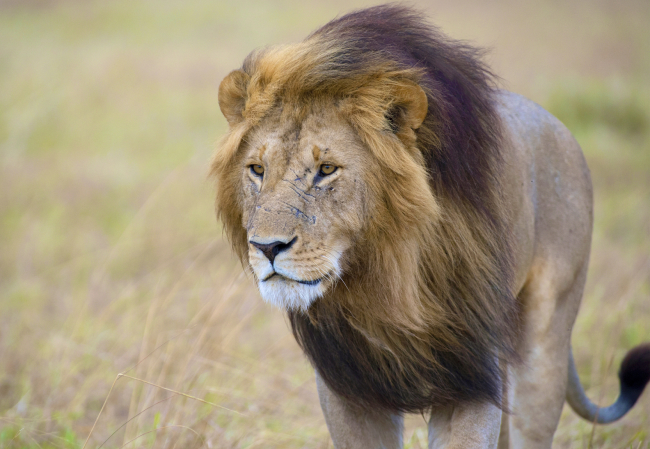The U.S. Fish & Wildlife Service has announced new regulations on the importation of sport-hunted lions into the U.S. from South Africa, and they’re probably not what you’d expect.
When USFWS first announced the addition of African lions to the Endangered Species List in December 2015, it was widely assumed that the end of legal hunting for the species was close at hand. Americans make up a large portion of the foreign hunters who visit the Dark Continent each year to hunt lions, and with the big cats now on the ESL, the banning of trophies entering the U.S. would effectively stop the pursuit of these animals.
However, USFWS threw a bit of a curveball Thursday when it announced that wild and wild-managed lions could be imported by sport hunters. The Service reportedly studied the positive effects sport hunting had on lion conservation and concluded the legal taking of these animals was, as hunting and conservation organizations have long said, a major boon to both South Africa and its lions.
Cats taken on so-called “canned” lion hunts—lions bred, raised, and taken in captivity—are not eligible for importation.
Director Dan Ashe laid out his and the Service’s decision in a Huffington Post article, which read in part:
“In order to permit the import of lion trophies under the ESA, exporting nations like South Africa must provide clear evidence showing a demonstrable conservation benefit to the long-term survival of the species in the wild. In the case of lions taken from captive populations in South Africa, that burden of proof has not been met. Many Americans, whether they hunt or not, believe that hunting captive-bred lions is unethical. Regardless, our decision to prohibit such imports is based solely—as the law requires—on our evaluation of the conservation benefits of captive lion hunts. If and when such benefits can be clearly shown, we may reevaluate our position.”
Other countries are still in limbo regarding trophy importations. USFWS is currently reviewing applications from Namibia, Mozambique, Zambia, and Zimbabwe, with the same benchmark of long-term benefits required for approval.
“Let me be clear: We cannot and will not allow trophies into the United States from any nation whose lion conservation program fails to meet key criteria for transparency, scientific management, and effectiveness,” Ashe said. “But it’s important to understand that lions are not in trouble because of responsible sport hunting.”
Conservation groups are pleased with the announcement.
“This conclusion is a blow to the anti-hunting rhetoric put forward by organizations such as the Humane Society of the United States and International Fund for Animal Welfare,” Safari Club International said in a press release. “The USFWS’s conclusion contradicts the assertions made by these anti-hunting organizations. The on-the-ground facts and the science simply did not support their position.”

